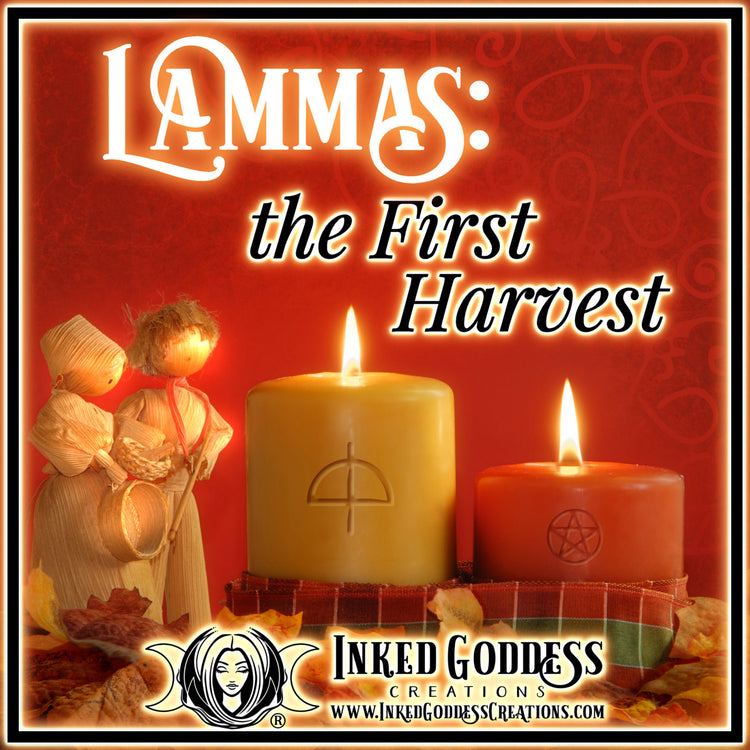Lammas: the First Harvest

Samhain, Yule, Beltane – some sabbats get all the attention! And others, namely Lammas, tend to be forgotten about. Maybe it’s because we’re all caught up in summer vacations or preparing for kids to go back to school. Whatever the reason, we tend to skip over Lammas, but it’s just as important as the rest of the celebrations throughout the year. After this, it may just become one of your favorite sabbats to observe!
What is Lammas?
Lammas, or its more traditional name, Lughnasadh (pronounced loo-nah-sah), is the first of the three harvest sabbats celebrated throughout the year. Celebrated on August 1st in the Northern Hemisphere, Lammas is sometimes called the First Harvest. On Lammas, our ancestors came together to harvest the food they would need for the upcoming winter and enjoy the last days of warmth before the autumn winds began to blow. Internally, Lammas is a time of the year for you to reap the benefits of the magickal seeds you planted back in the spring and make a note of your accomplishments so far this year. It’s a time to give thanks to the Earth for the plentiful bounty it has provided this year so far.
Lammas is also the celebration of the Irish god of the sun, Lugh (pronounced LOO). He was the King of the Tuatha De Danann, the mythical first people of the Celts. As the ancients held in high regard anyone who could conquer the element of fire, Lugh quickly rose in honor, as he was highly skilled in many arts that required fire. He was known as a mighty warrior thanks to a magick spear he crafted which often fought without him. He threw his mother, Tailtiu, a harvest fair in late summer, associating him as a god of harvest and grain.
Feasting for Lammas
Now is the time to celebrate the fruits of your hard work over the spring and summer – literally and metaphorically. Likewise, the feast of Lammas focuses on the grains and fruits that come with the first harvest. For thousands of years, observers have baked bread, placed wheat on altars – even in some Christian churches and Synagogues – and celebrated the sun. Use this time to explore some Kitchen Magick in the form of baking whole-grain bread or cornbread, sweets made with grains, fresh berries, and honey.
Foods to Enjoy at Lammas:
- Corn
- Potatoes
- Honey
- Summer Squash
- Oats
- Turnips
- Popcorn
- All Berries
- Barley Soup
- Beer
- Sweets frosted with yellow or orange icing
Other Deities of Lammas
While Lugh is the principal deity celebrated at Lammas, there are several other gods and goddesses to celebrate at the same time. Fertility, light, and the harvest are central themes to the sabbat. You may want to honor the following deities at this time too:
- Adonis, the Assyrian and later Greek God of Dying Summer Vegetation
- Ceres, the Roman Goddess of Harvest and Grain
- Corn Mother, the Native American Goddess of Corn
- Cronus, the Greek God of Harvest
- Demeter, the Greek Goddess of Harvest
- Hestia, the Greek Goddess of the Hearth
- Mercury, the Roman God of Communication and Facilitator of the Grain Trade
- Osiris/Neper, the Egyptian Grain God (Neper is an aspect of Osiris)
- Pomona, the Roman Goddess of Fruit Trees and Gardens
- Saturn, the Roman God of Harvest and Agriculture
- Tammuz, the Sumerian God of Crops
- Vesta, the Roman Goddess of Hearth and Home
Corn Husk Dolls
Corn Husk Dolls (or Corn Dollies) are a great craft for Lammas. They are often made to honor Mother Earth and the bountiful harvest that she has provided. Many corn dollies are also talismans for protection, abundance, and success through the winter.
Research ties the corn doll to many cultures, spanning thousands of years. Depending on the region, wheat, oats, or barley were braided to craft them as well. You can find our favorite detailed instructions for crafting a corn dolly here.
How will you celebrate Lammas?
Further Reading:
Sabbats: A Witch’s Approach to Living the Old Ways, by Edain McCoy
Wicca in the Kitchen, by Scott Cunningham
